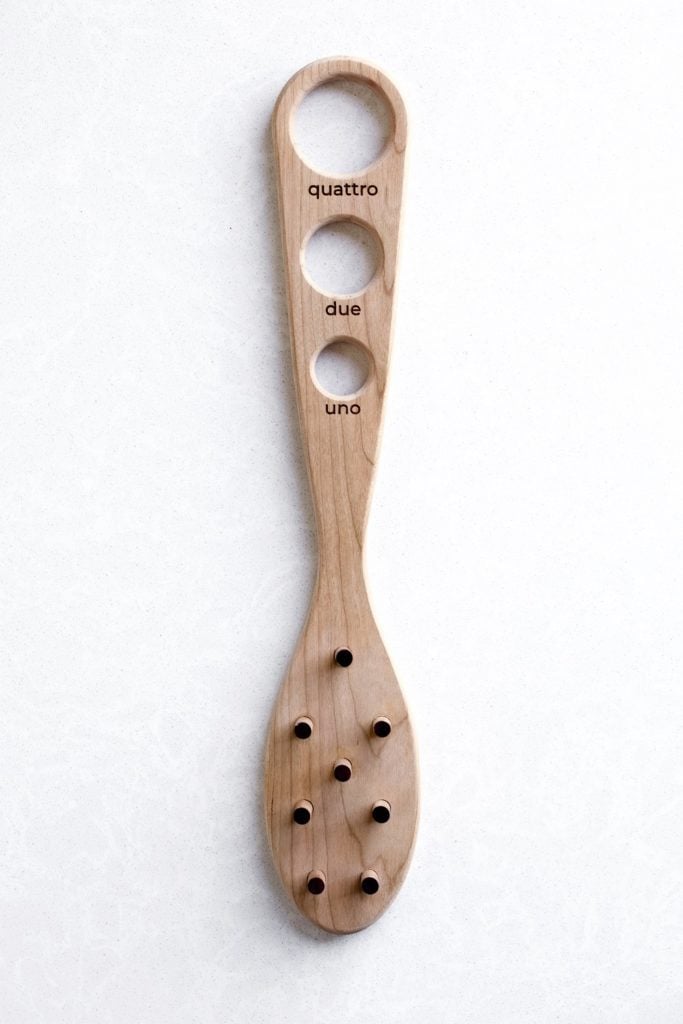Cooking Pasta ‘al dente’
Cook your pasta “al dente,” as we Italians say, but what does that mean, why is it important, and how do you cook it? Use these guidelines to ensure that your pasta is always perfectly al dente!
Tips for making pasta without it sticking:
- Add the pasta AFTER it is at a rolling boil. It will no longer fall and adhere to the bottom; instead, it will begin to move.
- DO NOT DUMP and DASH. Stir the pasta frequently as it cooks to avoid a clumpy mess and pasta that sticks to the pan’s bottom.
- To separate the pasta, use the appropriate pasta tool (see below) with prongs that resemble a fork.
- OIL AND WATER ARE NOT FRIENDS. Once the sauce is combined, adding fat to the water will stop the pasta from absorbing it.
I understand, you’re busy! The pasta is cooked, but the sauce is still cooking, so you let it sit or, worse, coat it with oil before mixing it with the sauce! If you must choose, leave the sauce alone instead of draining the pasta! If you’re preparing a pasta salad, read this recipe post to find out how long they keep and how to store it. And this is how to keep homemade pasta in storage without it sticking!
TIMING it’s all about TIMING
AVOID adding butter or oil before combining the pasta and sauce. Your pasta will not absorb the sauce; it will simply slide off of it. There is no going back.
This is the measuring and serving spoon that I use for pasta. A multipurpose, Italian cooking tool made specifically for you that is better than a pasta fork!
For delicately stirring, draining, and serving spaghetti and other pasta shapes, use a pasta server with fork-like teeth.
For spaghetti, the holes in the handle act as a portion guide (uno=one, due=two, quattro=four). It’s also great for stirring sauces and risotto!.
With its exquisite handiwork made of 100% cherry wood, your utensil is long-lasting, decorative, and fits neatly in a kitchen gadget drawer or utensil holder.
Use only hand washing and mineral oil occasionally to maintain the best possible appearance for cherry wood. Safe for use on nonstick cookware. Handmade in Salt Lake City, Utah USA.

WHY cook pasta al dente?
Pasta that is cooked al dente is more healthful than overcooked, mushy pasta because it is less likely to cause the GI index to rise when overcooked. It also just tastes better :). Try it this way when making Shrimp Scampi Pasta Recipe.